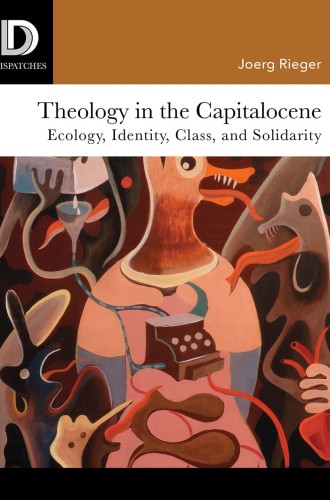The reality of deep solidarity
For Joerg Rieger, theology must account for global power dynamics, which are largely driven by capitalism.

Theology in the Capitalocene
Ecology, Identity, Class, and Solidarity
Liberal theology typically begins from a particular position: ecology, for instance, or identity or economics. In this book, Joerg Rieger goes at it entirely the other way, wrapping even into the title all of the various positions typically represented in separate volumes. This is what we might call doing theology at the seemingly impossible intersection of everything.
For the most part, Rieger makes it work. He argues, substantively in the book’s content and structurally in how he lays it out, that there are connections among politics, economics, and religion—and these connections must be accounted for by anyone doing theology. “Theology can no longer limit itself to the religious, but neither can it limit itself to religion and politics without considering the economic flows of power in a global context,” he writes. These power dynamics, which structure the way humans interact with nature, are largely driven by capitalism. For this reason, Rieger adopts historian Jason Moore’s designation of the present era as the Capitalocene.
In previous works, Rieger used philosopher Antonio Gramsci’s notion of the organic intellectual to develop a concept of the “organic theologian”: one who emerges from the underside of the socioeconomic system. In this book, Rieger functions as an organic theologian. He does not lift up specific minority contexts or volunteer his time for subversive enterprises. Instead, he does the difficult work of locating hegemony and power differentials (in everything) with an eye toward liberation.




